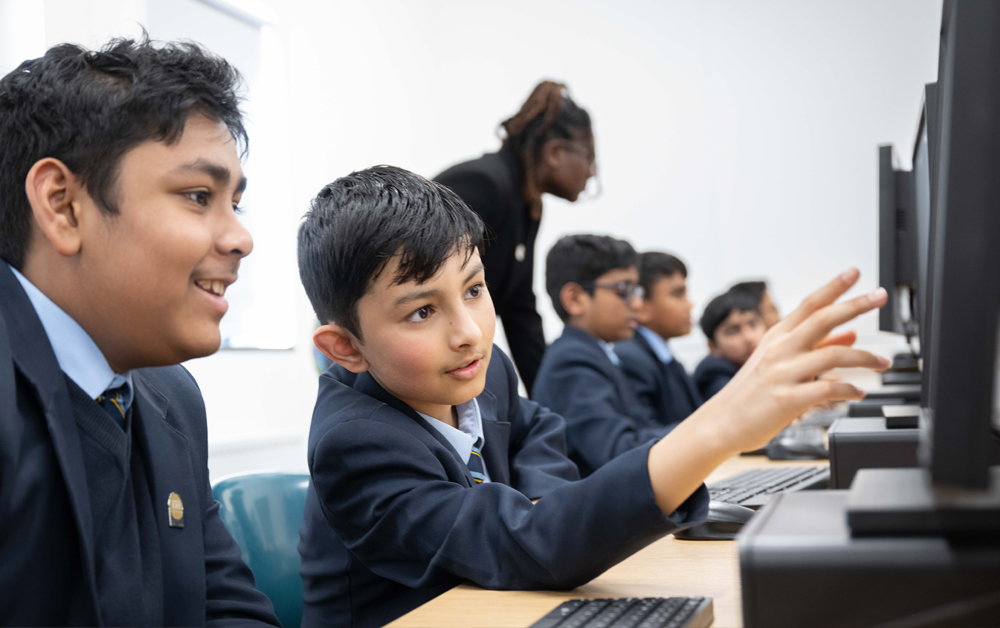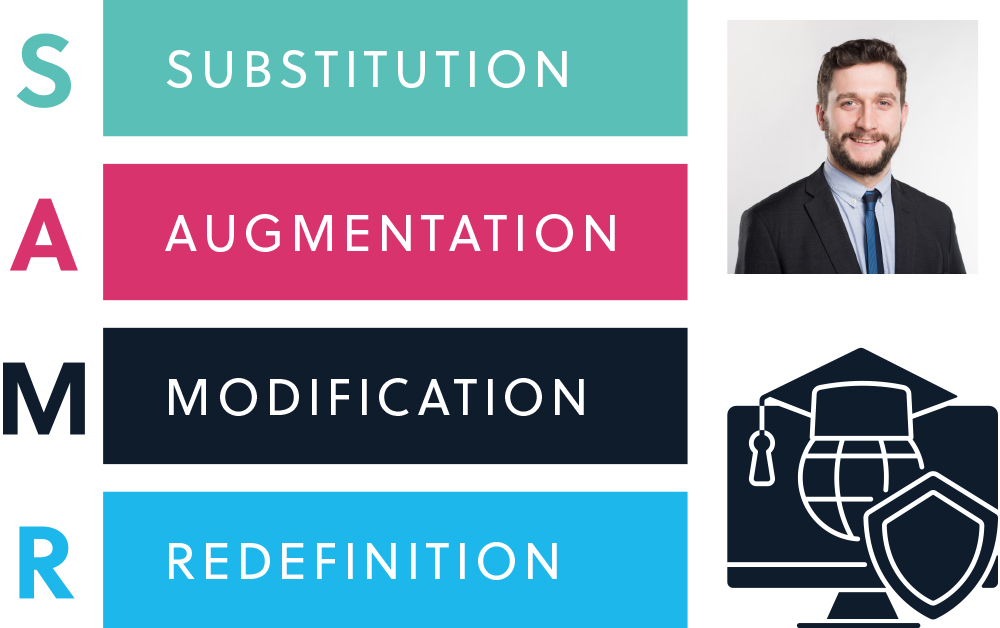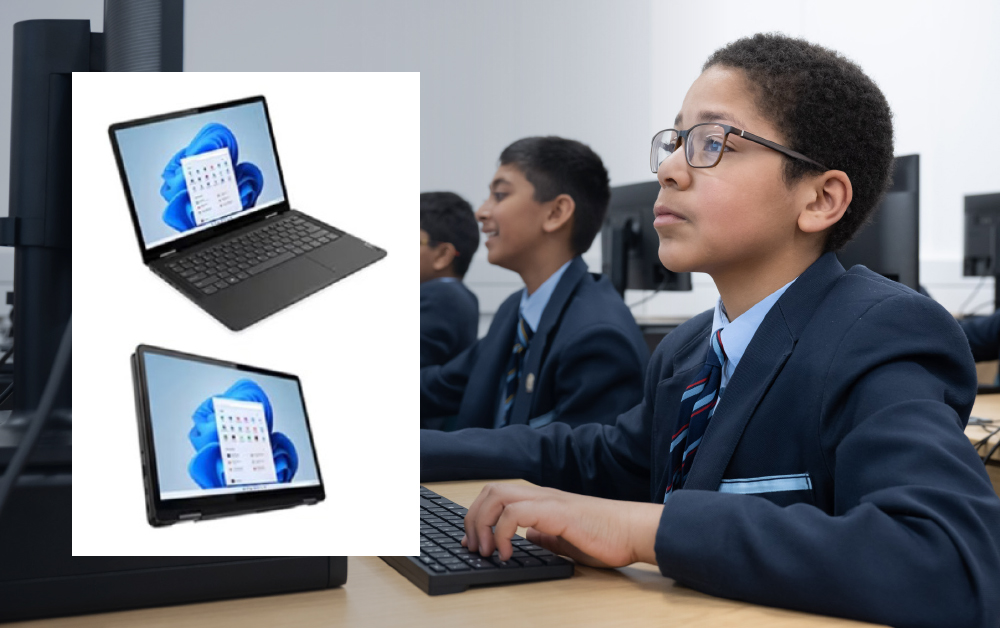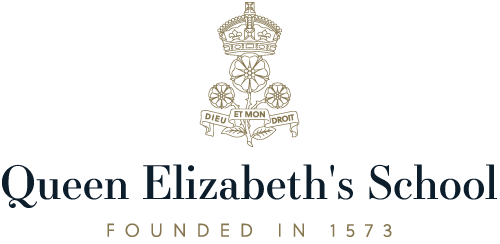|
 |
|
 |

|
|
Digitally confident, able and responsible
Dear parents,
I welcome everyone back at the start of this academic year, with a special welcome to our new families. We begin the term buoyed by a very positive summer, with excellent examination results. Our 450th anniversary year continues, and we want the anniversary to be as much as about looking to the future as it is about celebrating the past. In this regard, with this QE Update we bring you an introduction to our digital strategy.
QE’s mission to produce young men who are confident, able and responsible applies as much to the realm of technology as to other aspects of School life. We have a digital strategy that is carefully considered, yet also strongly forward-looking.
The strategy recognises the importance of our pupils being able to use technology effectively (‘digital literacy’). Secondly, it aims to make use of the enormous potential of technology for enhancing the QE educational experience. And thirdly, through it we aim to inspire boys and give them the skills they need so they can thrive at university and in exciting emerging careers in technology.
At the heart of this strategy is the introduction of our 1:1 programme and its planned roll-out to all students. Starting with our new Year 7 this term, the programme will see personal 1:1 devices (tablet computers) used extensively, both in the classroom and for homework. In this QE Update, you can find out more about the digital strategy, the 1:1 programme, and the steps we are taking to ensure pupils’ health and wellbeing, including their safety online. I hope you will share our teachers’ excitement at the huge possibilities that are opening up for the boys.

Neil Enright
Headmaster
|
|

|
|
The big picture: digital strategy
QE is aiming high with its digital strategy, explains Michael Noonan, Head of Digital Teaching and Learning.
We are planning to embed technology fully into the boys’ daily QE experience because we believe that, properly implemented, technology can entirely transform aspects of education. Educationalists have developed a model – SAMR (Substitution, Augmentation, Modification, Redefinition) – to explain how this works:
Substitution: in this first stage, technology replaces old methods, possibly saving time, money and effort, but with no functional improvement.
Augmentation: technology remains a direct substitute, but the technology enhances the learning process.
Modification: technology allows the design of interactive, dynamic tasks that would not be possible in a non-digital classroom.
Redefinition: in this most sophisticated stage, technology is used to realise entirely new learning opportunities in ways that would previously not even have been conceivable.
Our initial work is focused on enhancement, which includes substitution and augmentation. A good example of how specific technologies are already being used to support both the extra-curricular and academic programme is the PE department’s AI-driven VEO camera. This is used to record and then analyse players’ strengths and weaknesses using footage of their actual performance in fixtures and training. This is an example of what is meant by ‘augmentation’.
For the SAMR framework fully to take effect, we must ensure that boys know how to use technology effectively: achieving digital literacy, both for the boys and the School as an organisation, is, therefore, a major element of our strategy. Such ‘upskilling’ will, of course, reap dividends for our students in higher education and their future careers, enabling them to make the most of the hugely exciting opportunities in areas such as AI, virtual reality, blockchain and robotics.
Furthermore, while the SAMR model typically emphasises collaborative learning benefits, we recognise that in our own context, with QE’s emphasis on free-thinking scholarship, our digital strategy must also make full use of the very considerable opportunities that technology offers for personalisation and for enhancing independent learning.
To achieve all this, we have extensively researched not only which hardware and software to buy, but also how best to deploy it, learning from the good practice of others.
Finally, while we are excited about the benefits of technology, we are also alert to the challenges and threats it brings, especially for young people. So whether it’s establishing classroom protocols so there is no danger of boys being ‘glued to a screen’ all day, or buying in monitoring services to help us improve our filters and respond rapidly to harmful content, we have given this area a high priority. The health and wellbeing of our boys is a core element of the QE digital strategy.
|

|
|
Introducing the 1:1 programme
QE’s 1:1 programme places a world of resources at our teachers’ fingertips, enabling them to provide stimulating collaborative learning activities in the classroom and to tailor their approach easily to the needs of individuals. The technology will facilitate quicker, more efficient feedback from boys to teachers, and vice-versa. Pupils will be able to explore the best, most up-to-date resources – in the classroom, in the library and at home.
It will develop each pupil’s ability to independently direct his own learning, both inside and outside the classroom, and ensure that all QE boys, regardless of their socio-economic background, have an equitable educational experience. The 1:1 programme will also help the School remove barriers to learning for SEND students: the technology allows this to be done in a more discreet and flexible way.
Year 7 are being issued with their leased 1:1 devices this week; Year 9 will have theirs in January 2024, with other year groups then following. The Lenovo tablet selected is a state-of-the-art computer, combining touchscreen technology with a keyboard and a stylus. The leasing arrangement enables a workable, uniform approach, with all boys having access to the same apps available on the same device, all protected by the School’s online safeguarding systems.
The School is initially mainly using Microsoft’s powerful OneNote, Teams and Forms to provide an integrated approach to digital learning:
OneNote – a notebook for each subject class. It enables learning resources to be shared. Multiple students can collaborate on the same document and also save the work to their own private area of the notebook, while teachers can see pupils’ classwork ‘live’ and add comments;
Teams – a place to capture ideas that will inform classroom discussions. It allows teachers and pupils to: collaborate on classroom whiteboards and save the outcomes; easily access eQE Curriculum materials, and share quick quizzes to review and assess understanding;
Forms – allows boys to assess their own knowledge quickly; teachers can instantly share marks, feedback, and even suggestions for subsequent revision topics.
The School sees the 1:1 programme as the addition of another tool to a pupil’s ‘pencil case’. Notwithstanding the high importance we attach to it, the technology should not be all-consuming. We recognise, for example, that examination boards still, for the most part, require handwritten papers, so we will be maintaining handwriting skills, with boys shifting between pen & paper and the online space (often using their styluses) with ease. Teachers will use their professional knowledge and judgment to decide how, and when, to use the 1:1 devices: in some lessons, they may be in use throughout, in others, not at all. In short, we are adopting a blended learning environment, employing the best of both digital and traditional approaches. |
|
Preparing the ground
QE is prioritising the infrastructure, software and training needed to make sure that the digital strategy can be implemented effectively and in a way that will positively impact the QE experience. Teachers, of course, need to be digitally literate, just as our pupils do! Extensive staff training ahead of the introduction of the 1:1 programme has, therefore, already taken place. A major upgrade of the WiFi network across the whole site was completed over the summer, with new cabling and hotspots installed. At the same time, we continue to make investments in our buildings: the complete refurbishment of two Science laboratories went ahead this summer, creating a high-quality learning environment to support advanced learning.
|

|
|
Healthy, safe and secure
Online safety has been a key consideration in the planning of our 1:1 programme. We are taking steps to protect boys from damaging or inappropriate material. The rapid rise of AI adds another dimension: while it offers opportunities to enhance boys’ research and refine their thinking, it also brings risks of plagiarism, of pupils failing to acknowledge the use of AI, and of over-reliance, leading to a reduction in critical thinking and problem-solving skills. The QE curriculum – alongside public examination and course protocols – will educate boys about academic integrity and the responsible use of AI.
We have also undertaken measures aimed at helping our pupils avoid problems such as eye-strain and fatigue, both for their immediate well-being and to prevent any longer-term health concerns from arising.
|
|
Feeding back: our online safety survey results
Deputy Head David Ryan (Pastoral) thanks all the parents and pupils who took the time to complete the online survey on eQE earlier this year.
He reports that while there were a few interesting gaps between parents’ and boys’ perceptions, in general, the current Personal Development Time curriculum tallies well with people’s biggest concerns, while the risks that boys in the younger years and their parents were most worried about are now being covered in the new Year 7 digital literacy curriculum.
|
|

|
|
Sixth Form use of digital technology
James Kane, Assistant Head (Pupil Destinations), explains that as our sixth-formers prepare for university applications or other opportunities, technology plays an important role.
Building on skills acquired lower down the School – in robotics or coding activities, for example – they research degree courses and universities; access lectures provided online by universities globally; and participate in online debates. Many tests required for entry to competitive universities are now online.
With our curriculum covering online safety from Year 7 onwards, by Year 12, students have few concerns, with 99% of sixth-formers agreeing or strongly agreeing with the statement ‘I know how to stay safe online’. Importantly, many of our Sixth Form debates and lectures, such as those on AI, prepare our students for the moral, as well as the technical, dimensions of the online world.
In recognition of their growing independence and maturity, sixth-formers can use their mobile phones in lessons (when instructed), in The Queen’s Library, and in Café 1573. They can also bring in their own tablets or laptops, so they can use eQE to track tasks and submit assignments, and access learning resources. Digital devices are particularly helpful to Year 12s drafting their university application personal statements during pastoral time, since live edits can be made.
|

|
|
Queen Elizabeth's School, Queen's Road, Barnet, Hertfordshire, EN5
4DQ
|
|
| |
|
|
Copyright © September 2023 |
|
|
|
|